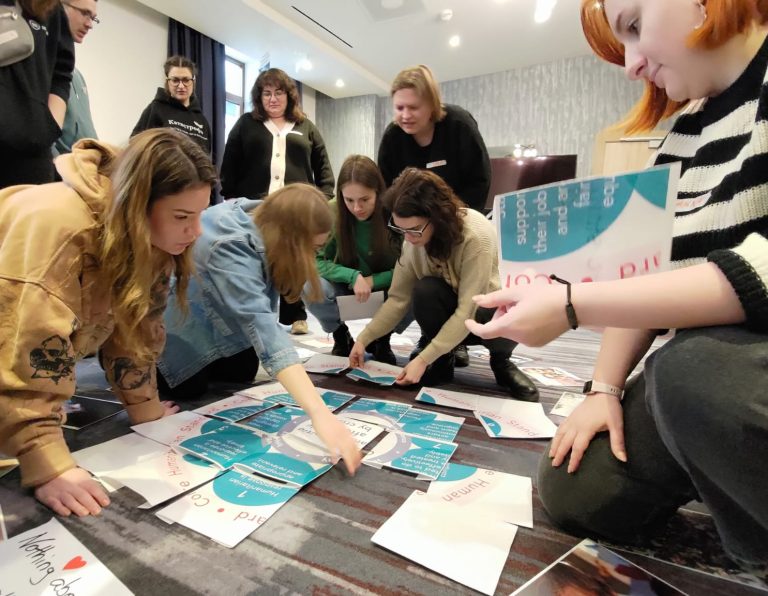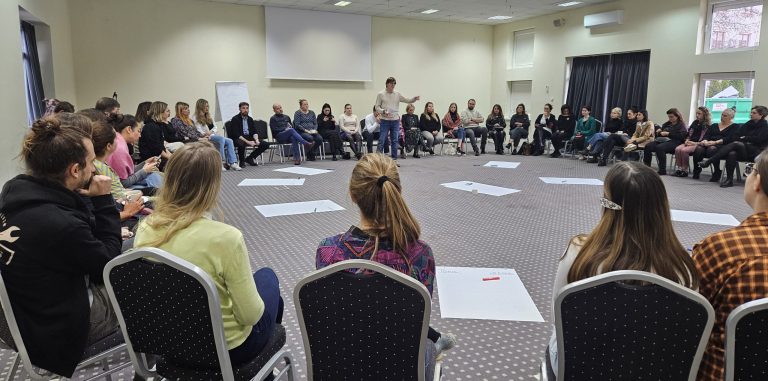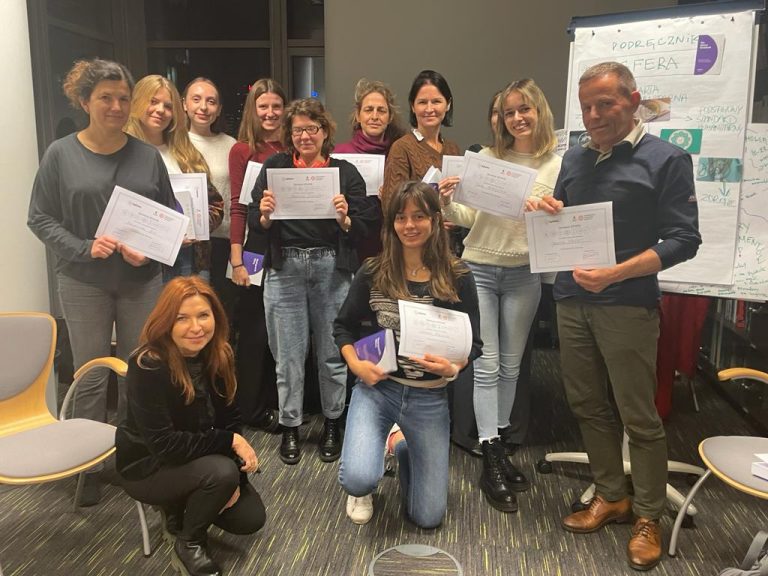On March 15, Pawel Mania, our Deputy Director for Transformational Response, co-moderated the Funding and Capacity plenary panel at the 2nd Annual Ukrainian Aid Leadership Conference in Kyiv, Ukraine.
Together with Lesia Ogryzko, Deputy Chief of Party at USAID project “Ukraine Civil Society Sectoral Support Activity” at ISAR Ednannia, and the panelists, they discussed the efficient use of funds from the localisation perspective.
Ihor Liski, Chairman of the Supervisory Board of EFI Group, Ukrainian Institute for the Future, addressed how business involvement played a key role during the first months of the response in Ukraine because of the ability to make fast and flexible decisions and use horizontal connections with various sectors. He emphasised the importance of fostering trust and collaborative relations between business, civil society and NGO sectors rather than existing and operating “in their own bubbles”.
From the philanthropy perspective, Daria Rybalchenko, Chairman of the Board of National Network for Local Philanthropy Development, shared that even though the dialogue on localisation has been started and the voices of smaller local organisations are being heard more, there are still systemic challenges which must be addressed for more efficient response. She underlined the importance of mutual transparency between local and international actors and communicating as humans rather than as organisations first.
Oleksandr Galkin, Director at Right to Protection (R2P), highlighted the danger of the lack of understanding of the context and duplication of existing processes by international actors, which can undermine local actors’ work. He also advocated for more equal partnerships between actors.
From the international actors’ perspective, Charlene Woolley, Head Humanitarian at Foreign, Commonwealth and Development Office (FCDO), highlighted that even though the localisation approach was taken from the very start of the Ukraine response in 2022, it is still going slower than the actors, both local and international, would like it to be. David White, Pooled Fund Manager at the Ukraine Humanitarian Fund, agreed that funding processes are still very bureaucratic.
Pawel reflects:
I appreciate the honesty of the civil society organisations in Ukraine expressing frustration with a system that appears a bit stuck. This should encourage us, INGOs, to practice the same and be transparent about our own limitations. We need to stop pretending that we have everything figured out. We are also humans, we make mistakes, and, similarly to many local organisations, we are often understaffed. But there is good news: it means that we need each other, and together we can attempt to course correct.
We are grateful for the opportunity to take part in the conference and hear all the insights from the participants.


